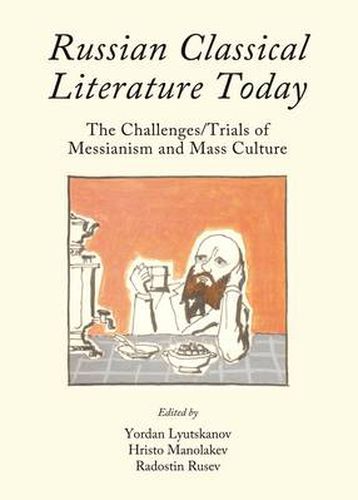Readings Newsletter
Become a Readings Member to make your shopping experience even easier.
Sign in or sign up for free!
You’re not far away from qualifying for FREE standard shipping within Australia
You’ve qualified for FREE standard shipping within Australia
The cart is loading…






This book explores a range of (mis)uses of the Russian classical literature canon and its symbolic capital by contemporary Russian literature, cinema, literary scholarship, and mass culture. It outlines processes of current canon-formation in a situation of the expiration of a literature-centric culture that has been imbued with specific messianism and its doubles.The book implements Pierre Bourdieu’s theory of the cultural field, focussing on a field’s constitutive pursuit of autonomy and on its flexible resistance to the double pressure of the political field and the economic field. It provides material for elaborating this theory through postulating the principal presence of a third factor of heteronomy: the ‘strong neighbour’ within the cultural field. Furthermore, this volume demonstrates the heuristic of comparing the current Russian (mis)uses of classical literature to prior Russian and current foreign ones. As such, it also discusses such issues as the historical relativity of a literary field’s (notion of) autonomy and the geo-cultural variability of the Russian literary canon.
$9.00 standard shipping within Australia
FREE standard shipping within Australia for orders over $100.00
Express & International shipping calculated at checkout
This book explores a range of (mis)uses of the Russian classical literature canon and its symbolic capital by contemporary Russian literature, cinema, literary scholarship, and mass culture. It outlines processes of current canon-formation in a situation of the expiration of a literature-centric culture that has been imbued with specific messianism and its doubles.The book implements Pierre Bourdieu’s theory of the cultural field, focussing on a field’s constitutive pursuit of autonomy and on its flexible resistance to the double pressure of the political field and the economic field. It provides material for elaborating this theory through postulating the principal presence of a third factor of heteronomy: the ‘strong neighbour’ within the cultural field. Furthermore, this volume demonstrates the heuristic of comparing the current Russian (mis)uses of classical literature to prior Russian and current foreign ones. As such, it also discusses such issues as the historical relativity of a literary field’s (notion of) autonomy and the geo-cultural variability of the Russian literary canon.